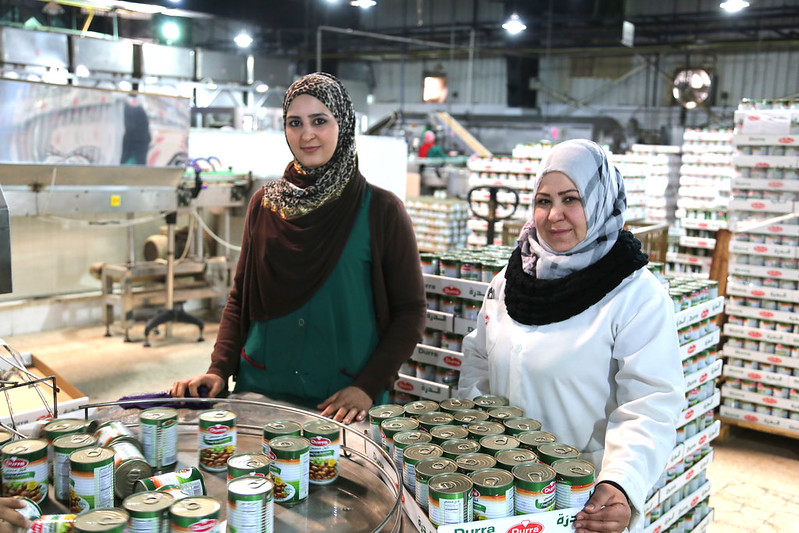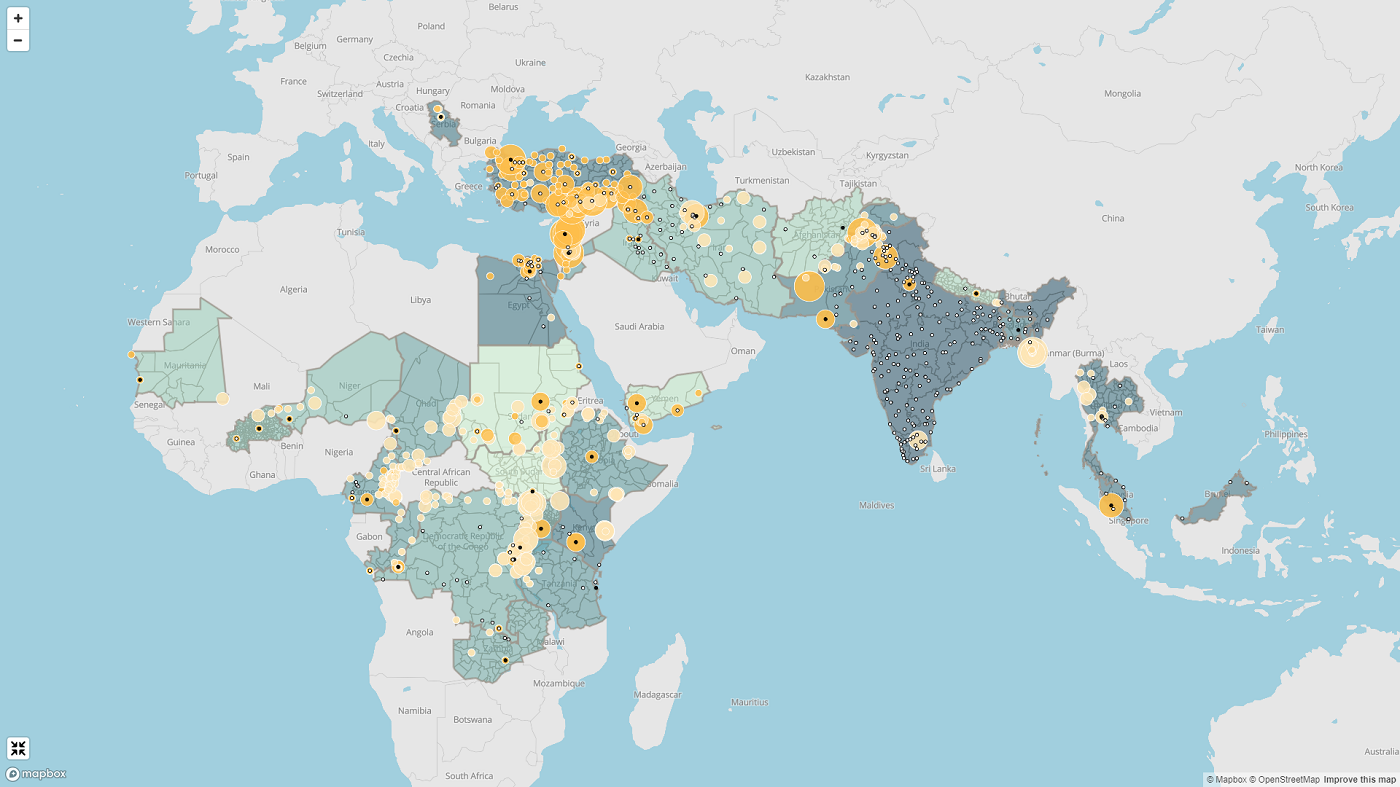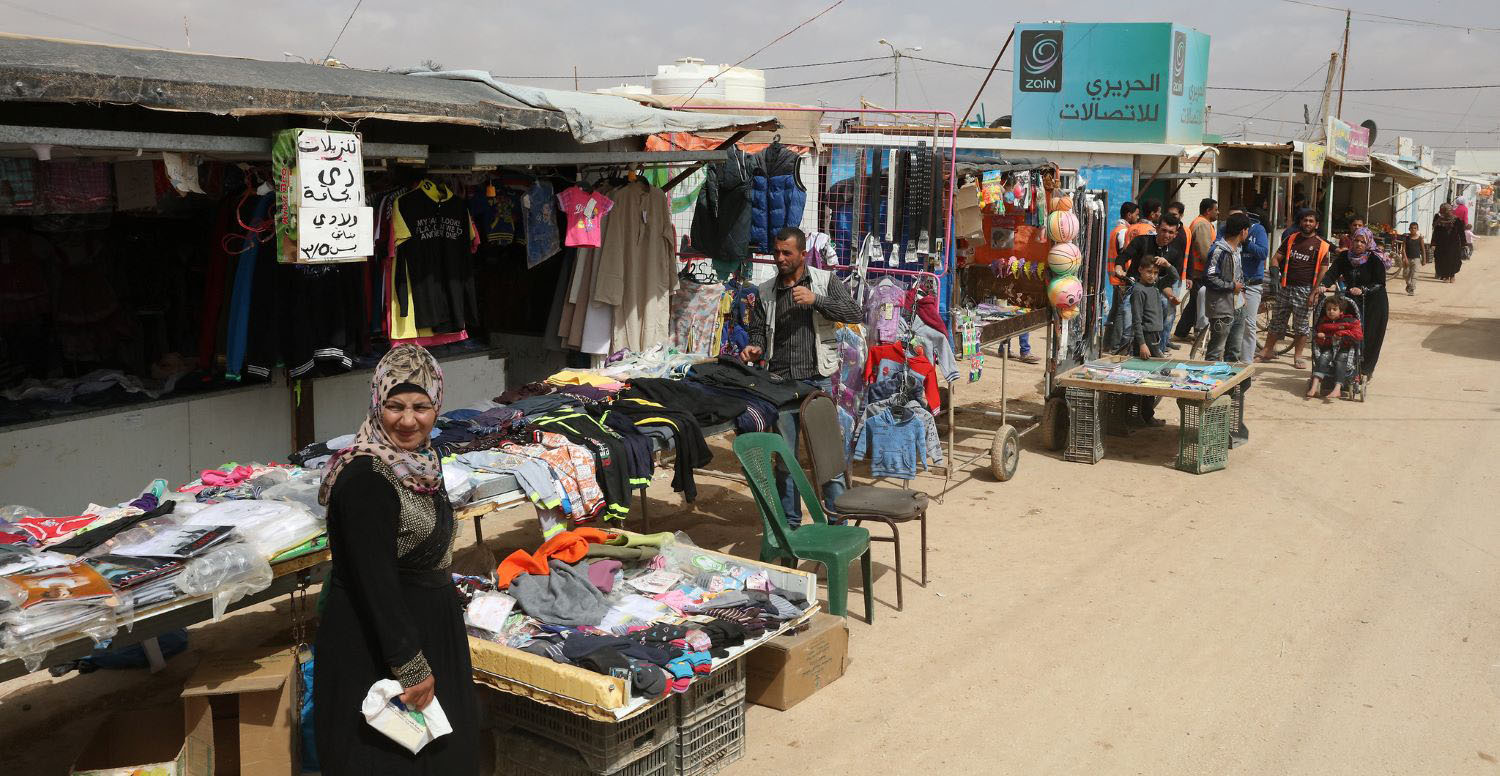Recommended

Many actual or potential host countries for refugees face serious challenges in integrating the refugees into the domestic labor markets. A primary concern is resistance from citizens in the host countries. Integrating refugees into host-country labor markets will continue to prove difficult if citizens do not see the benefits, or do not feel that they are adequately compensated for the expected costs. Turkey is a relevant example of this challenge today, which we explore in this blog post.
The case of Turkey
The people and Government of Turkey have shown great courage and generosity in hosting millions of Syrian refugees. However, after eight years of supporting the refugees, Turkey is in dire need of new solutions to the protracted refugee crisis. As Kerem Kinik, head of the Turkish Red Crescent Society, puts it, “There is still a paradoxical gap between the recognition of crises and finding appropriate solutions for them.”
Both the Turkish Government and the international development community recognize the importance of integrating Syrian refugees into the labor market. The proposals to improve the current situation range from creating special industrial zones near the Syrian border to calls for the EU to lift custom duties on Turkish goods to boost employment of Syrian refugees.
But having more refugees join the workforce presents a significant challenge: With the economy in recession and an unemployment rate currently standing at 13 percent, some Turks—especially those living in economically depressed regions—perceive refugees as competitors for their jobs. Almost 70 percent of the respondents of the recent survey in Istanbul were “not content with the presence of Syrian refugees” in Turkey.
As of March 2019, only about 31,000 Syrian refugees in Turkey had official work permits. This is only 1.5% of the 2.2 million working-age Syrian refugees (with another 1.5 million dependents). Those without a work permit are working in informal and irregular jobs often below the official minimum wage and with poor working conditions and few other benefits. Expanding access to work permits is one of the top three recommendations from a recent report by the Rand Corporation on improving wellbeing of Syrian refugees in Turkey.
A significant proportion of Syrians in Turkey have university degrees, yet few manage to find professional jobs. For example, most of the university-trained Syrian agronomists in Sanliurfa city, identified by the UN, are either unemployed or working in unskilled jobs.
Are there ways to assimilate Syrian refugees into the Turkish economy?
A mutually beneficial solution: create a market for work permits
Since 2011, the Government of Turkey spent close to $40 billion to provide education, health care, and housing to Syrian refugees. In 2016 and 2017, the EU disbursed about $2.2 billion on various projects targeting refugees with $6 billion more allocated for future projects. One of the most significant projects funded by the EU, the Emergency Social Safety Net, administers unconditional cash transfers to 1.25 million refugees in Turkey; other donors, like UNICEF, pay a top-up to households where children meet 80 percent of school attendance.
Why not use some of this money to help skilled Syrian workers find jobs in Turkey? Two of us (Lokshin and Ravallion) have outlined an approach that could be applied to this problem, to ease the tension between the Turkish population and the Syrian refugees and, at the same time, bring a range of benefits to the Turkish economy.
The idea is to create a market for work permits. There would be two sides to this market. On the supply side, citizens already have an (implicit) work permit, which is an important asset for many—indeed, the main asset for poor people. Lokshin and Ravallion propose that citizens should be allowed to rent out their work permit for a period of their choice. Each citizen would still own the right, but would also be given the legal right to rent it out (like other property). On the other side of the market, refugees, with support from the donor community, can purchase time-bound work permits that would allow them to work in Turkey.
With the current high unemployment rate, it is understandable that there is resistance to increasing aggregate labor supply. The Lokshin-Ravallion proposal avoids this. The market in work permits can be designed to balance the demand for those permits from refugees with the supply from Turkish citizens.
The high rate of unemployment in Turkey probably makes many people worried about losing the jobs they currently have, even if they are not enjoying their jobs that much. Those with secure jobs would be unlikely to want to risk losing that job. However, others who can only find casual, short-term work might prefer to rent out their work permit and get engaged in some other activities—for example, setting up a new business, taking care of young children, or obtaining skills for getting a better job later.
How it works
A refugee who wants a permit to work in Turkey would simply purchase one. The refugee might not need to pay the full market price of the work permit, but their contribution should be significant. Only those refugees who feel that they could find a remunerative job in Turkey will use that option.
The Government and donor organizations could help to bridge the gap between the refugee’s contribution and the market price of the work permit using some combination of grants and loans. Having bought the work permit and found a job, the assistance that the refugee currently receives from the government would be cut. (This should be tapered rather than sudden, to reduce the disincentive effect on the refugee’s desire to find work.)
Limiting the market for work permits to employed Turks (and young adults who reach school leaving age) will avoid putting extra overall pressure on the Turkish labor market; indeed, the scheme can be designed to keep total employment constant. Turkish workers with the lowest wages would tend to get the largest benefit from renting out the work permit. There will probably be some tightening in the low-wage labor market, further benefiting relatively poorer workers (even if they did not choose to rent out their work permit).
Refugees expecting to earn high wages in Turkey would gain the most from purchasing the work permits. There will probably be a gain in aggregate output for the Turkish economy, to the extent that highly motivated and productive Syrian refugees replace poorly motivated and low-productivity workers. This will also result in higher taxes collected from the refugees working in well-paid occupations.
The welfare of the Turkish citizens who take up this new opportunity will improve as they can now engage in the range of activities while still receiving income comparable or higher to what they received while working. (For example, such workers may then be able to provide home care to an elderly or otherwise incapacitated family member. Or the worker may use this opportunity to finance education.) After the contracted time, the Turkish worker will get back his right to work (it remains his property, and he only rents it out for the desired period). Or he can buy it back before the end of that period if he wants.
Opportunities and considerations
The implementation details of the “market for work permits” proposal should be developed taking into careful consideration the regulatory environment, as well as economic and ethical issues in Turkey. A small pilot in Istanbul or other urban areas with a high concentration of Syrian refugees might help to test the viability of this approach for Turkey.
Importantly, the new market for work permits in Turkey could relieve tensions between the native population and Syrian refugees. Those tensions stem (in part at least) from the competition for jobs. In this proposal, the extra work for the Syrian refugees is balanced with the reduced work of Turkish citizens who are compensated accordingly. A common interest is generated.
Instead of being seen as competitors on the job market, refugees would be seen as part of a cooperative arrangement to improve social protection and reduce poverty among the Turkish population. This will not fully solve the refugee problem, but it will provide a new policy option that will help achieve a managed absorption of refugees into the Turkish labor market.
Disclaimer
CGD blog posts reflect the views of the authors, drawing on prior research and experience in their areas of expertise. CGD is a nonpartisan, independent organization and does not take institutional positions.
Image credit for social media/web: European Union/ECHO/Caroline Gluck/Flickr






